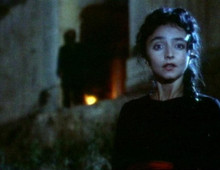 Loading... Please wait...
Loading... Please wait...New Products
Our Newsletter
Product Description
1871 (1990)
Director:
Ken McMullenWriters:
Terry James, James LeahyStars:
Roshan Seth, John Lynch, Timothy SpallThe bloody history of radical revolutionary movements in France has frequently provoked otherwise reasonable people in other countries to have an unreasoning fear of alternative political movements. In 1871, Napoleon III ruled France in a way that made him very popular with the rich and with aristocrats and would-be aristocrats around the world (particularly in the U.S.). In particular, he rigorously suppressed any hint of dissent, and prevented the development of trade unions and socialist political movements. In 1871 there was a bloody uprising which produced a short-lived regime known as "The Paris Commune," founded on principles every bit as radical as anything from the French Revolution of 1789. The story of this time is told from the point of view of the actress Severin (Ana Padrao) and the theater in which she worked. Her favors were sometimes available to those with sufficient funds, and she had two lovers: one, a revolutionary, the other, an English spy. In the end, neither is able to save her.
Currency Converter
Choose a currency below to display product prices in the selected currency.

















